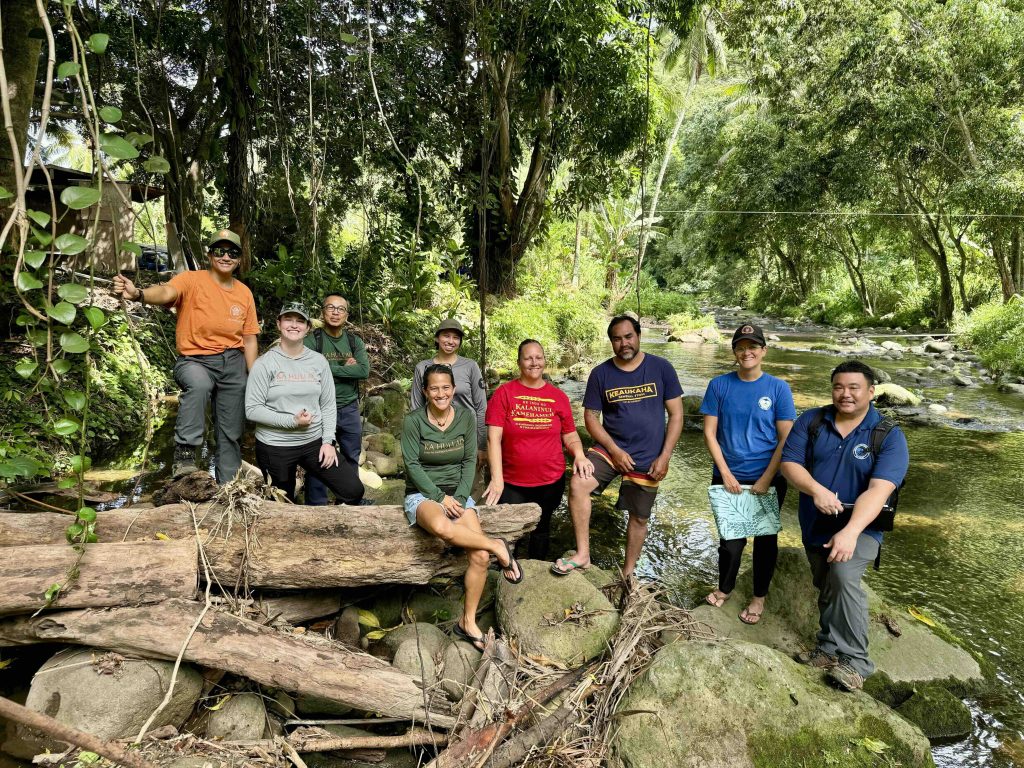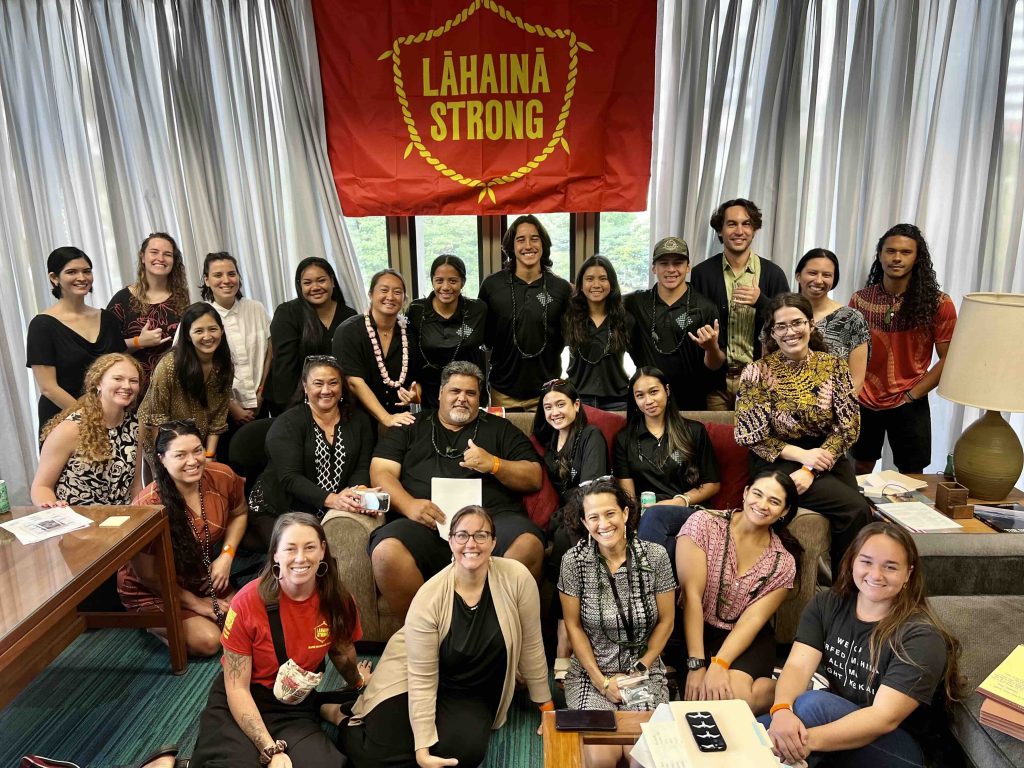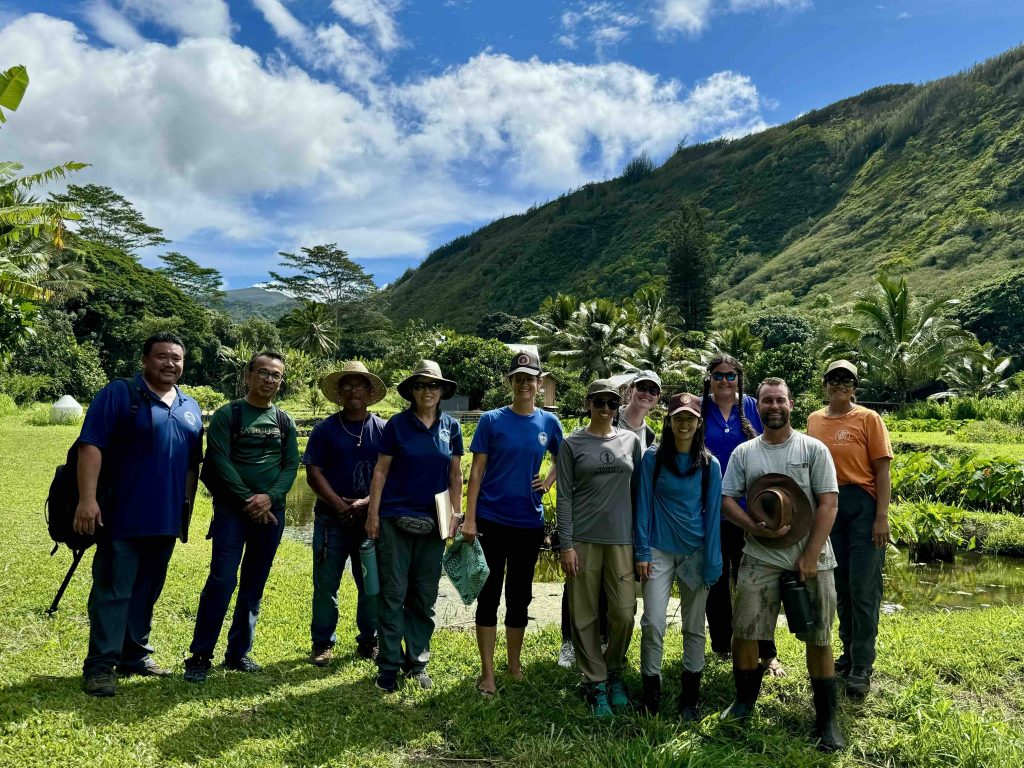
Since 2021, the University of Hawai‘i at Mānoa’s Native Hawaiian Rights Clinic has been supporting Maui Komohana residents in their generational efforts to protect and restore their natural and cultural resources, especially their wai. Supported with funding from the Office of Hawaiian Affairs, the Hawaiian Native Corporation, and the Hawaiʻi Justice Foundation, this Clinic provides direct legal services to rural communities, and numerous Native Hawaiians, while also offering students and recent graduates invaluable, real-world practice experience.
In 2024, the Clinic continued to focus on uplifting the Maui Komohana community with a focus on its wai and waiwai. The 2024 legislative session witnessed an onslaught of bills designed to “help” Lahaina in the wake of the devastating 2023 wildfires. Unfortunately, however, it was extremely difficult for community members to participate and weigh-in on efforts that would impact their future, especially given that so many were still consumed with basic recovery and survival issues. Clinic students worked with affected individuals across Maui Komohana in monitoring and testifying on bills that would impact their community. For example, Clinicians mentored haumāna (students) from Ke Kula Kaiapuni ʻO Kekaulike and Lahaina regarding Native Hawaiian law and policy, including the process of how a bill becomes law. Nā haumāna learned civic engagement by providing written and oral testimony on a range of bills and resolutions. These middle and high school students also met with legislators to share their concerns and other manaʻo. Clinicians not only increased their own understanding of the legislative process through this experience, but also helped to co-power the next generation of Native Hawaiian rights advocates.
During the Fall 2024 Semester, the Clinic continued to support the Maui Komohana community with designation and related water use permitting. This process will determine how water is distributed from Honokōhau to Ukumehame and whether streams and related cultural practices such as kalo cultivation can and will be restored. Permitting is also incredibly difficult to navigate without the assistance of an attorney. The Clinic supported community members in better understanding this complex process. It also served as an intermediary between the Water Commission and applicants who are unfamiliar with the legal aspects of water use permitting. By helping the Water Commission contact and build pilina (relationships) with applicants, the Clinic hopes to expedite the permitting process, especially for community members with priority rights under the constitution and Water Code.


